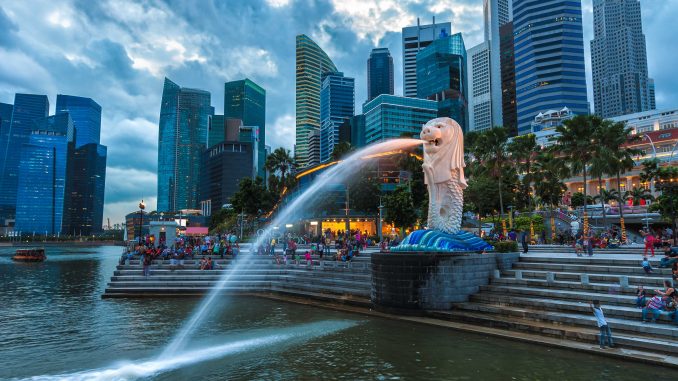New Zealand-Singapore upgraded economic agreement ratified

Phnom Penh Post - 31 December 2019
New Zealand-Singapore upgraded economic agreement ratified
The upgraded Agreement between New Zealand and Singapore on a Closer Economic Partnership (ANZSCEP) has been ratified by the two nations and will enter into force on Jan 1, 2020.
The upgraded agreement adds e-commerce and regulatory cooperation chapters to the ANZSCEP, Singapore’s first and New Zealand’s second bilateral Free Trade Agreement (FTA) that became effective Jan 1, 2001, the Ministry for Trade and Industry said on Monday (Dec 30).
The agreement will address modern trade issues and improve trade rules and provisions that are in line with newer FTAs that Singapore and New Zealand have entered into.
Singapore’s Minister for Trade and Industry Chan Chun Sing said: “The swift ratification and entry-into-force of the upgraded ANZSCEP signals Singapore and New Zealand’s commitment to upholding an open and rules-based trading system.”
Negotiations for the upgraded ANZSCEP were launched in June 2017 under the trade and economic pillar of the Singapore-New Zealand Enhanced Partnership. The upgraded ANZSCEP was signed on May 17, 2019 during New Zealand Prime Minister Jacinda Ardern’s first official visit to Singapore.
The upgraded ANZSCEP incorporates some of the most flexible and trade-facilitative rules of origin among Singapore’s FTAs and the shortest release times for goods and expedited shipments.
“This modernised agreement will further reduce barriers to trade and enhance regulatory cooperation and e-commerce efforts, benefiting businesses from both our countries. I look forward to the deepening of economic relations between our countries,” Mr Chan said.
Singapore and New Zealand were part of the proposed 12-nation Trans-Pacific Partnership (TPP), which gave way to the Comprehensive and Progressive Agreement for Trans-Pacific Partnership after US President Donald Trump withdrew from the TPP. They are also part of the Regional Comprehensive Economic Partnership, which is under negotiation.
All tariffs for Singapore’s exports to New Zealand were eliminated under ANZSCEP, which came into force in 2001. It also provided for tariff preference based on the exporter’s declaration, safeguards for market access and protection for Singapore investors and investments in New Zealand. The FTA ensured a more predictable operating environment for service suppliers.
Singapore and New Zealand share strong trade and investment ties, the MTI statement said. In 2018, bilateral trade registered a 12.1 per cent year-on-year increase to S$4.1 billion. Singapore was New Zealand’s sixth largest investor with approximately S$3.9 billion worth of investments as of end-2017, figures from New Zealand’s official data agency Stats NZ showed.
New Zealand was among the first countries to recognise Singapore’s independence. In 2015, then President Tony Tan Keng Yam made a state visit to New Zealand to mark the 50th anniversary of diplomatic ties.
Besides their strong economic ties, Singapore and New Zealand also cooperate closely on defence through platforms such as the Asean Defence Ministers’ Meeting-Plus and the Five Power Defence Arrangements.
Since 1997, the Singapore Armed Forces (SAF) has been conducting artillery training at the Waiouru Training Area in New Zealand.





